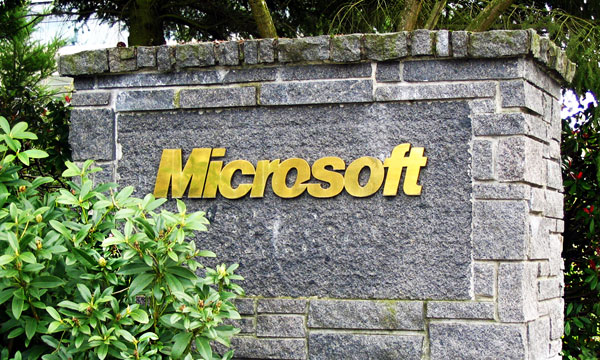Microsoft last week announced plans to crack down on terrorist content, perhaps in response to the Obama administration’s intense effort to get Silicon Valley’s help in preventing organizations like ISIS from using social media as a recruiting and fundraising tool.
Microsoft has amended its terms of use to prohibit the posting of terrorist content on its various platforms, extending the existing prohibition on hate speech and advocacy of violence against others. The company categorized terrorist content as material posted by or in support of any organizations in the Consolidated United National Security Council Sanctions list, which includes groups the UN Security Council considers terrorist organizations.
The prohibition specifically deals with content that depicts graphic violence, encourages violent action, endorses a terrorist group or its acts, or encourages people to join such groups, according to Microsoft.
It was inevitable that there would need to be new approaches to combat terrorism in the digital arena, Microsoft said, noting the importance of the Internet as a communications hub.
Recent events have served as a reminder that it can be used for the worst reasons imaginable, the company added.
Alternative Narratives
Microsoft will continue using its notice and takedown process for removing prohibited content. When brought to its attention through its online reporting tool — whether by governments, concerned citizens or other groups — such content will be removed.
In a nod to censorship concerns, Microsoft said it would remove links to terrorist-related content from Bing search results when the takedown would be required of search providers under local law. The company already operates that way in France, for example, where police authorities routinely report links to terrorist-related content.
The antiterror efforts Microsoft and others have undertaken should be effective, said Todd Helmus, senior behavioral scientist at the Rand Corp., because in addition to limiting access to terror networks, the companies are providing alternative messaging.
“What’s noteworthy about Microsoft and what you’re seeing from the other social media giants is that not only are there efforts to remove content or limit access to content, but also … opportunities for counter content,” he told the E-Commerce Times. “That’s also a very important aspect of this as well.”
Microsoft routinely gets government requests for customer data. During the second half of 2015, the firm received 39,083 requests involving more than 64,000 users globally, for example.
Twitter, Facebook and others in recent months have taken steps to crack down on the use of their sites for terrorist activity, hateful speech or content promoting violence. The changes followed the revelation that the shooters in the San Bernardino massacre in 2015 were inspired by social media linked to ISIS.
Censorship Concerns
While concerned about violence against U.S. citizens, civil liberties advocates expressed concern that crackdowns like this may serve only to push dangerous speech underground while threatening the First Amendment rights of innocent civilians.
“Creating a free-floating ban on certain types of speech, no matter how controversial, only serves to hide controversial ideas in the shadows — it makes no one safer,” argued ACLU attorney Lee Rowland.
“Public dialogue about racism, terrorism and other evils is the most critical step in ultimately defeating it,” she told the E-Commerce Times.
Censorship of speech based on national security claims often backfires, Rowland noted, as was the case when Apple voluntarily blocked applications that identified sites of U.S. drone strikes because they included “objectionable material.”
Microsoft plans to partner with nongovernmental organizations to display public service announcements with links to positive messaging, as well as alternative narratives for some search queries, with the goal of deterring troubled individuals from heading down a path toward violence.
Microsoft is seeking creative new ways to deal with the issue. For example, it is providing funding and technical support to Dartmouth College Professor Hany Farid to develop a technology to help stakeholders identify copies of patently terrorist content, including images, video and audio. Such a solution could help avoid the game of whack-a-mole that often occurs when content that is taken down soon reappears elsewhere.
The company is a founding member and financial supporter of a new private-public partnership to help counter terrorist abuse of Internet platforms. Founded in Geneva last month, the partnership includes the UN Counter-Terrorism Committee Executive Directorate, with civil society, academic, government and industry representatives.
Microsoft also is adding resources to its YouthSpark initiative, which provides material to help young social media users engage in safer online socializing and distinguish factual information from hate speech.






















































